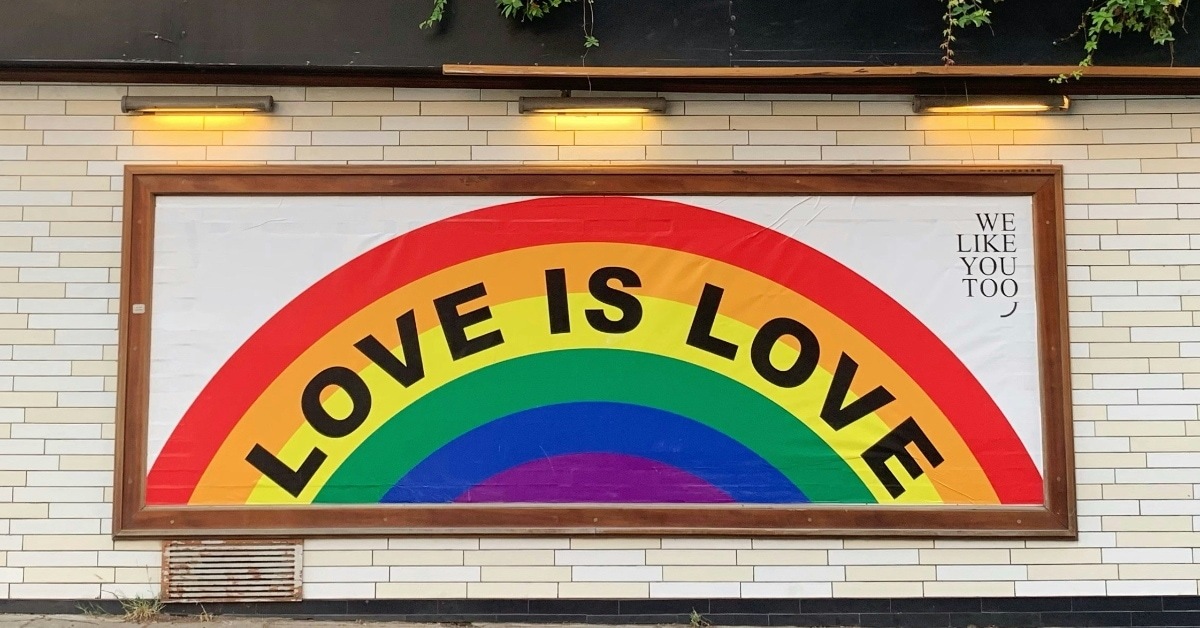Majority of Black voters support LGBT rights, more divided on the issue of trans student-athletes: theGrio/KFF survey
A recent survey conducted by theGrio in partnership with KFF found that a majority of Black voters support LGBTQ+ rights, The post Majority of Black voters support LGBT rights, more divided on the issue of trans student-athletes: theGrio/KFF survey appeared first on TheGrio.
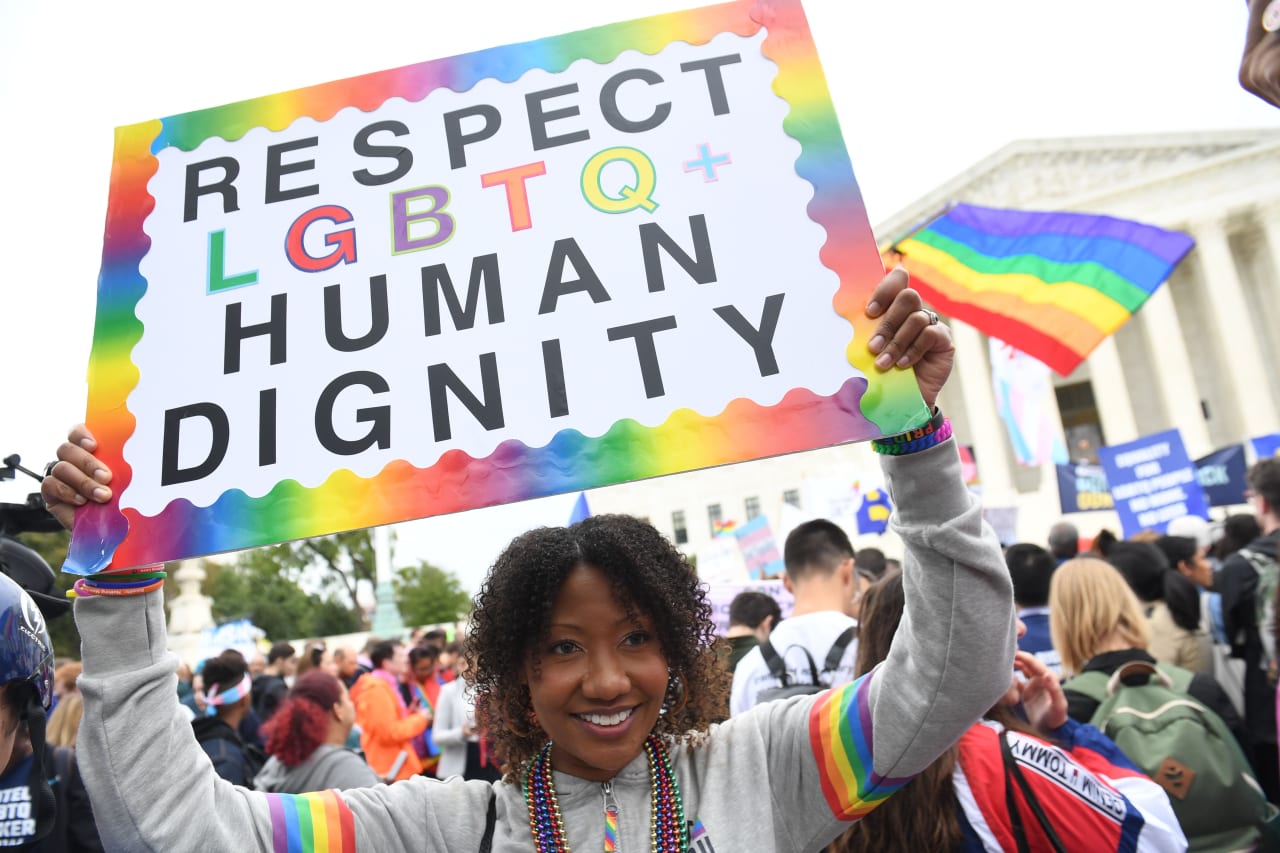
TheGrio/KFF Survey of Black Voters asked Black voters a series of questions related to the civil rights and visibility of those who identify as lesbian, gay, bisexual, trans, or queer.
A recent survey conducted by theGrio in partnership with KFF found that a majority of Black voters support LGBTQ+ rights, including codifying the right to marriage for same-sex couples and teaching schoolchildren about sexual orientation and gender identity.
TheGrio/KFF Survey of Black Voters, conducted Aug. 24 through Sept. 5, asked Black voters a series of questions related to the civil rights and visibility of those who identify as lesbian, gay, bisexual, trans, or queer.
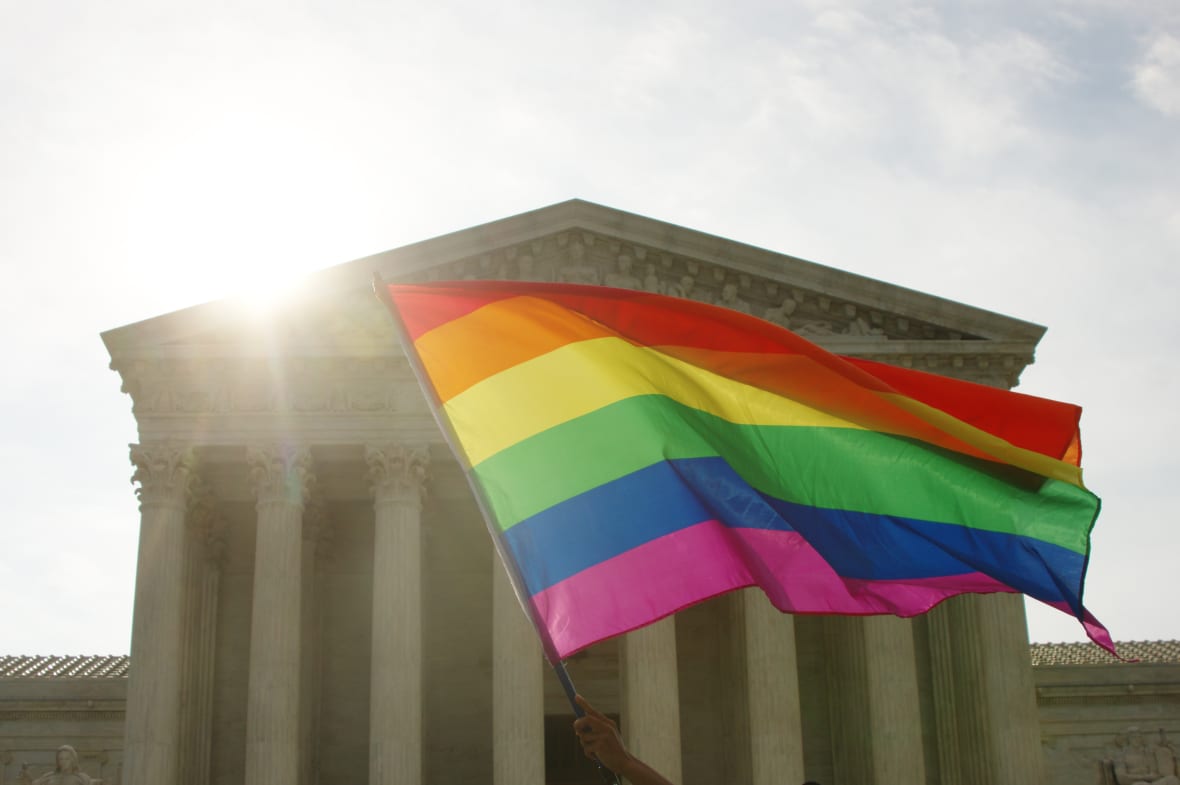
When asked if they think recent decisions by the Supreme Court have been a step forward or step backward for the rights of LGBT people, about half of Black voters (53%) said that recent decisions had been a step backward. Another 46% said rights for LGBT Americans had taken a step forward.
In 2015, the Supreme Court ruled in Obergefell v. Hodges that same-sex marriage was a constitutional right, granting gay and lesbian couples across the country the right to wed. But in a 2018 case, in which a Colorado baker refused to sell a wedding cake to a same-sex couple because of his religious beliefs, the court ruled in favor of the baker.
While gay marriage remains the law of the land, Democrats in Congress and LGBTQ+ advocates have expressed worry that the high court could potentially overturn the constitutional right to marriage for same-gender-loving couples.
This past summer, in the controversial Dobbs v. Jackson case, the now conservative-majority Supreme Court overturned Roe v. Wade, reversing a nearly 50-year-old right to an abortion. In his concurring opinion, Justice Clarence Thomas sent shockwaves through the LGBTQ+ community when he indicated that settled cases on gay marriage and same-sex intimacy should, like Roe, be reconsidered. Justice Thomas called cases on those matters “demonstrably erroneous.”
David J. Johns, executive director of the Black LGBTQ+ advocacy group, National Black Justice Coalition, said all Black voters should be alarmed by the most recent decisions by the Supreme Court and Justice Thomas’ apparent judicial inclination. Johns believes Thomas and the conservative justices on the court are intent on blurring the line between church and state — something he says could harm all marginalized groups like women, Black people, LGBTQ+ individuals, and especially those at the intersection.
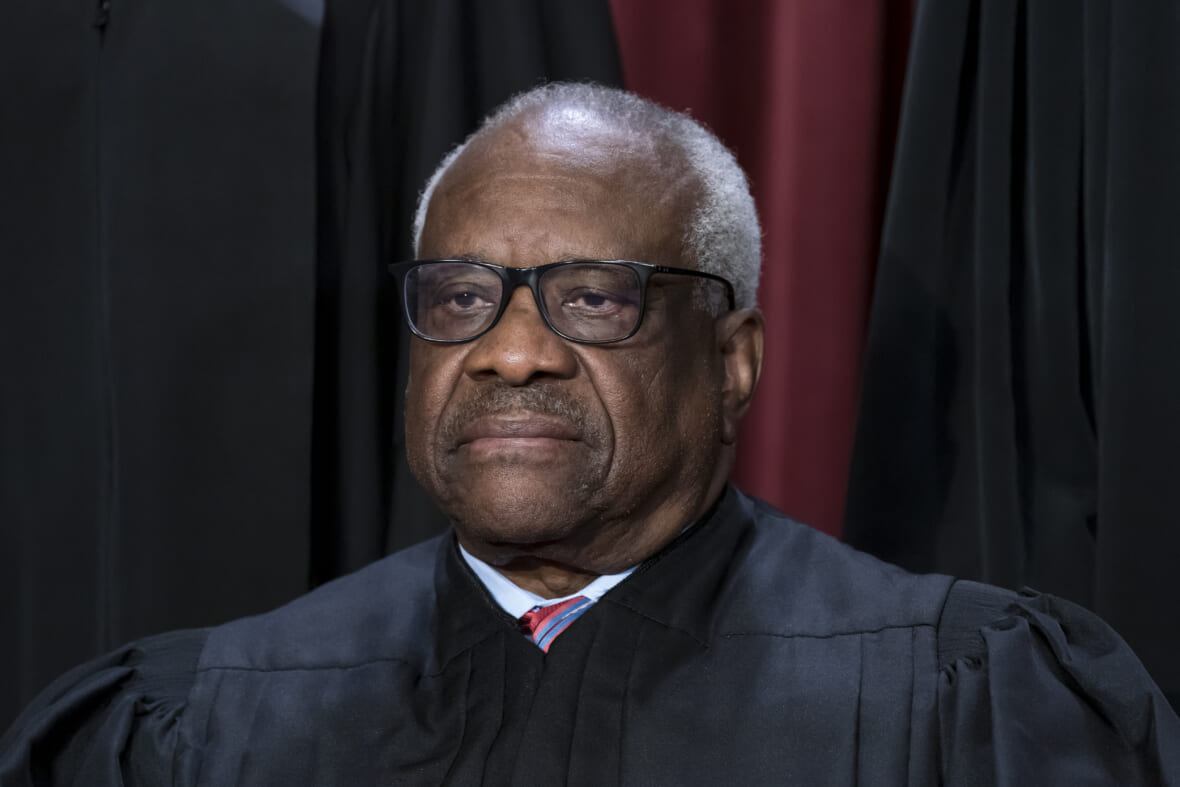
“I’m concerned about the Supreme Court obliterating the very thin line between church and state,” Johns told theGrio. “If there is not a case that [the Supreme Court] is scheduled to review that would otherwise impact or infringe upon the rights that folks right now might take for granted – there will soon be a case.”
In response to Thomas’ judicial opinion, Democrats have vowed to codify into law the federal right to marriage for LGBTQ+ (and interracial) couples through the Respect for Marriage Act. However, they have so far been unable to get the needed 10 Republican votes in the U.S. Senate. Democrats in Congress have also tried to pass The Equality Act, which would expand discrimination protections for LGBTQ+ Americans, but in a divided Congress, they have been unsuccessful.
Black voters surveyed by theGrio/KFF were also asked about their thoughts on Congress codifying same-sex marriage, to which 68% replied in support. When asked if they support or oppose Congress updating the Civil Rights Act of 1964 to include protections against discrimination based on sexual orientation and gender identity, 78% said they strongly or somewhat support doing so. Only 24% said they were either strongly or somewhat opposed to updating the Civil Rights Act in this way.
In a Pew Research poll in 2014, a year before same-sex marriage was legalized nationwide, a majority of Black people said they were against lesbian and gay couples tying the knot.
“You’re seeing the changing of times,” Florida state Senator Shevrin Jones told theGrio. “You’re also seeing that in the Black community, you have churches that are becoming more affirming, which is changing a lot of how the Black community looks at the LGBTQ community.”
Jones, who made history as the first gay Black person elected to the state legislature, noted that pastors today are “genuinely” facilitating discussions about acceptance of LGBTQ congregants, which is significant considering the Black church has historically been an epicenter of the Black community.
Interestingly, there was a difference in response to questions about the LGBT community among those who identified as non-evangelical Christians and those who identified as evangelical Christians. When asked if they thought recent decisions by the Supreme Court had been a step forward or a step backward for LGBT rights, 58% of non-evangelical Christian Black voters said those rights had gone backward compared to 44% of Black evangelical Christians.
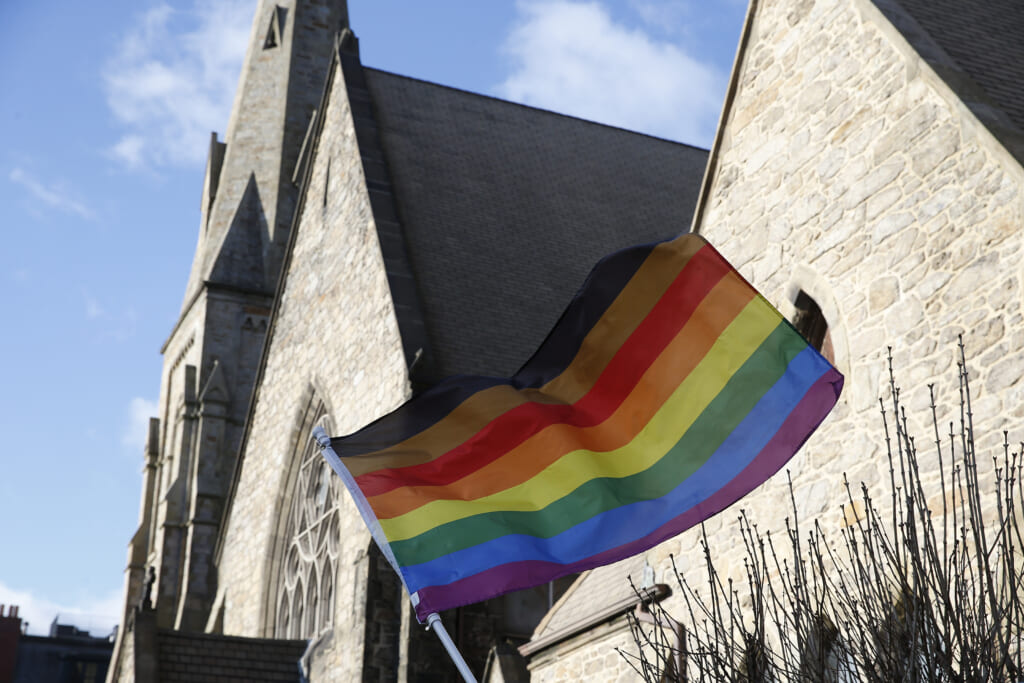
Moreover, Black voters who identified as non-evangelical Christians were notably more likely (82%) than evangelical Christian Black voters (69%) to support Congress updating the Civil Rights Act of 1964 to include protections against discrimination based on sexual orientation and gender identity.
He also suspects that “grandmothers and grandfathers are starting to realize that their grandchildren are being very clear who they are unapologetically.” He added, “So as the generations continue to change … you’re seeing a more accepting generation, more loving generation.”
But as children begin to publicly affirm their sexual orientation and gender identity at younger ages than previous generations, some politicians have taken aim at LGBTQ+ discussions through policy. Some laws proposed or passed across the country seek to prohibit discussions about sexual orientation and gender identity. Others seek to bar trans students from participating in school sports and restrict medical treatment for children who identify as transgender.
Earlier this year, Florida Gov. Ron DeSantis signed into law the Parental Rights in Education Act, also known as the “Don’t Say Gay” bill, which prohibits conversations about LGBTQ+ identity in classrooms.
In a separate survey question, 58% of Black voters said they strongly or somewhat support allowing public school teachers to teach students about sexual orientation or gender identity. However, when asked if they supported allowing transgender student-athletes to compete on sports teams that match their gender identity, a majority of Black voters (56%) said they strongly or somewhat opposed.
Jones, who was a very vocal opponent of DeSantis’ “Don’t Say Gay” bill, said the survey results from theGrio/KFF simply reflect that “people reject what they don’t know,” noting that transgender issues and visibility are a relatively “new topic” in the Black community. Of the Black voters surveyed by theGrio and KFF, only 11% identified as LGBT. Black voters who identified as LGBT were more likely than non-LGBT Black voters to support allowing transgender student-athletes to compete on sports teams that match their gender identity (62% vs. 40%).
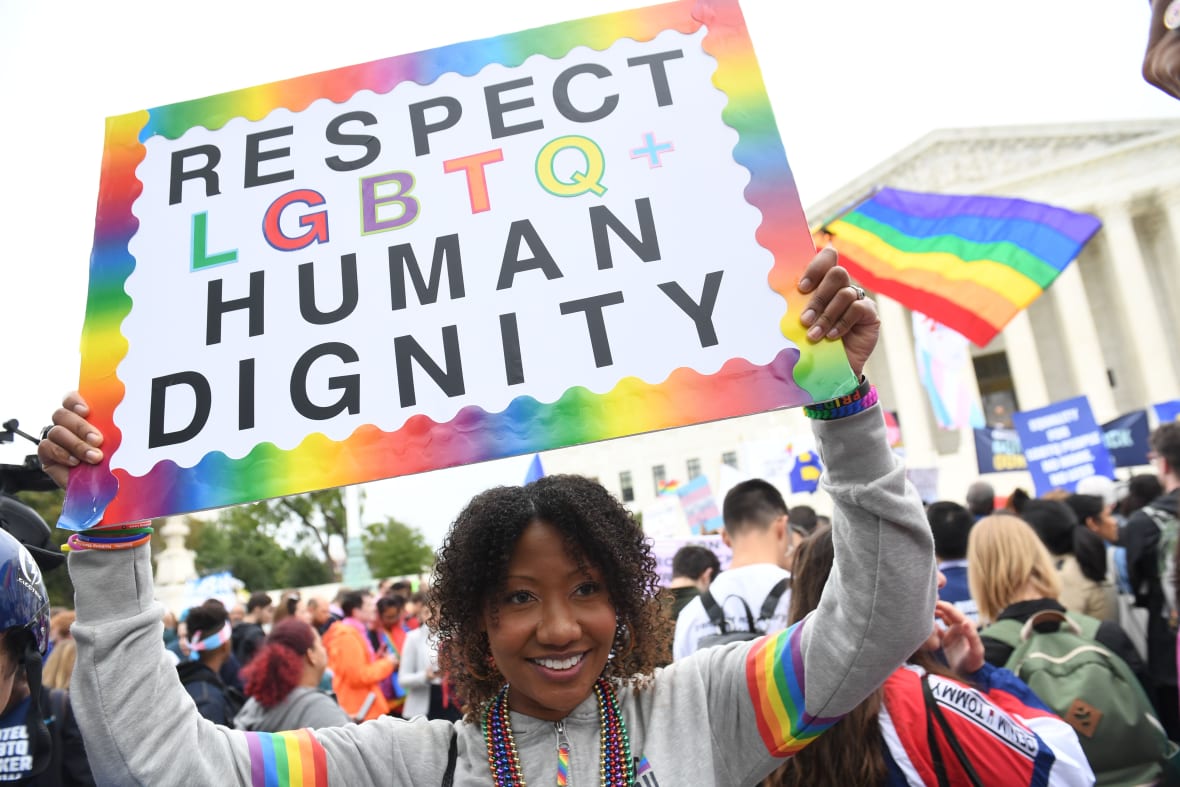
He explained, “People reject what they don’t have an understanding of, and until we get to a place where we are amplifying their voices .. for people to come and say that I am human also, there’s nothing to be afraid of … we will continue to see this.”
Jones, who also sits on President Joe Biden’s HBCU Board of Advisors and works with the National Black Justice Coalition, said when it comes to shaping the political narrative around LGBTQ+ rights and identity, Democrats have to be “just as bold as these Republicans are being when it comes to calling out these things … let’s put the real issues on the table.”
Johns said the Republican Party’s targeting of LGBTQ+ issues is “political theater at its finest.”
He continued: “These are plays that the radical right and the Republican Party, at every level, have tried and tested, and they are ramping things up and being more transparent about their tactics and their lack of regard for people and for democracy, especially in spaces where their political power is most threatened.”
Republican lawmakers have argued that prohibiting LGBTQ+ discussions among children protects them from being sexualized and deemed such discussions “not age appropriate.” Johns, who taught kindergarten and third-grade students, noted that “children are taught about expectations around gender and sexual identity, especially for girls, long before they’re born.”
“Doctors guess at gender and people have gender-reveal parties, and often represent the futures of their children in colors,” he added. “From those moments, [they] start to teach children about sexual orientation and gender identity.”
Jones said theGrio/KFF Survey of Black Voters overall reflects that Black Americans are solidly in support of LGBTQ+ rights, likely because they have been historically oppressed.
“When we see people being attacked in a certain way, we reject that. Whether we agree with what you’re doing or not,” he said. “Black people know what it means to struggle, and because of that struggle, we push back on anyone who we feel is being downcasted. And I think that’s what we’re seeing right now.”
About the Survey
The Survey of Black Voters is the first partnership survey between theGrio and KFF, a nonprofit organization focused on research and analysis of health and other national issues. Teams from KFF and theGrio worked together to develop the questionnaire and analyze the data, and both organizations contributed financing for the survey. Each organization is solely responsible for its content.
The survey was conducted Aug. 24–Sept. 5 with a nationally representative, probability-based sample of 1,000 adults who identify as Black or African American and are registered to vote. The sample includes all voters who identify as Black or African American, including those who also identify as Hispanic or multi-racial. The sampling design includes Black registered voters reached online through the SSRS Opinion Panel and the Ipsos KnowledgePanel; to reach Black voters who do not use the internet, additional interviews were conducted by calling back respondents who previously participated in an SSRS Omnibus poll and identified as Black and said they did not use the internet. The combined telephone and panel samples were weighted to match the sample’s demographics to the national U.S. population of Black voters using data from the Census Bureau’s 2020 Current Population Survey (CPS) Voting and Registration supplement. Sampling, data collection, weighting and tabulation were managed by SSRS of Glen Mills, Pennsylvania, in close collaboration with KFF researchers.
The results have a margin of sampling error of plus or minus 4 percentage points for results based on the full sample of Black voters. The full methodology and question-wording are available here.
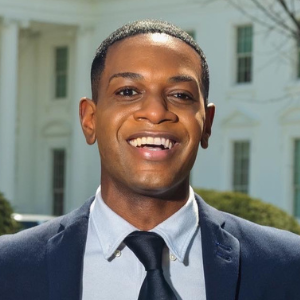
Gerren Keith Gaynor is the Managing Editor of Politics and Washington Correspondent at theGrio. He is based in Washington, D.C.
TheGrio is FREE on your TV via Apple TV, Amazon Fire, Roku and Android TV. Also, please download theGrio mobile apps today!
The post Majority of Black voters support LGBT rights, more divided on the issue of trans student-athletes: theGrio/KFF survey appeared first on TheGrio.









